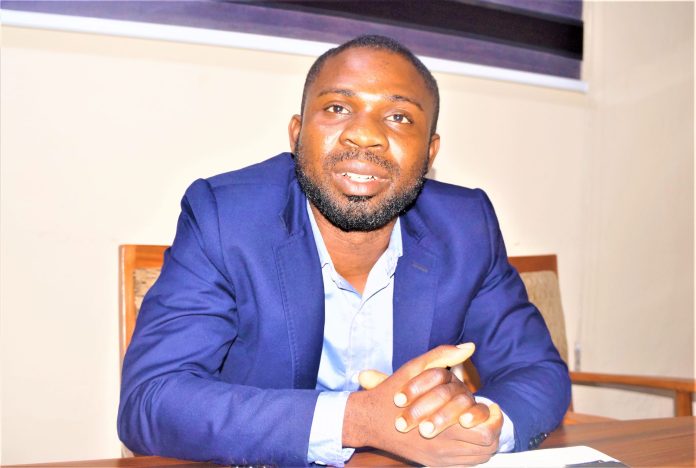In this interview, Ahmed Ayoade Oyedotun, the Chief Executive Officer and Co- Founder of Afrimash, an eCommerce firm focused in agriculture ecosystem talks about making agriculture convenient, ensuring that smallholder farmers enjoy quality inputs and finally how to deepen food productivity in the country. Anthony Nwosu captures this in an exclusive interview.
Tell us about Afrimash as an organisation?
We are an eCommerce platform based in Ibadan, Oyo state. We basically connect farmers with quality kits and products. What we do is basically connect farmers to good agricultural inputs. We deliver nationwide. We started in 2016 and we are about 4 years now. We can be said to be an eCommerce platform that is agricultural oriented where farmers can get tools, inputs and other agricultural inputs. Our core aim is to make agriculture convenient. We are a very valuable, sustainable, and profitable organization that provides premium value to customers via the contribution of a talented workforce who enjoy providing quality service to customers. We work with a set of very important core values that guide every action we take. We pay close attention to Prioritization, Excellence, Speed and Integrity
Majority of farmers are said not to be vast in IT, how do you go about this as an eCommerce platform?
What people think about eCommerce is that it makes buying and selling seamless and easier. We know that this (Ecommerce) has to do with access to internet. One thing that eCommerce does is that it makes it easy for suppliers and buyers to meet but in agriculture it is a different ball game, we are talking about life products like day old chicks etc. Access to quality inputs is one of the biggest challenges that a farmer faces in Nigerian and Africa. We are here to bridge that gap. Today, a lot of farmers have access to internet and we have broadband deployment that is spread out so we are leveraging on these communication infrastructures such as widespread availability of internet and broadband technology. Though apart from internet access we developed a hybrid system that makes it easy for farmers to buy even without internet. We have dedicated shopping assistants that farmers are able to call. We have solved these problems is difficulty of accessing inputs.
How secured is Afrimash platform?
We are very secured and we don’t take this aspect our business lightly. eCommerce has come of age in Nigeria. We have partnered with reputable firms like Paystack and others. These is to ensure that ensure top-notch security and encryption is maintained especially in the area of payment. There is adequate security for every transaction that goes on in our platform. We have top-notch encryption in the platform. This security is layered and we always improve on security of our platform. We have not had issues with security.
How has the market accepted this?
Well, when we started over the years, a lot of pessimist said that farmers are not online, but trust me, we have come to realise that this is wrong. With high repeat customers and a lot of our customers come through referral. We have a lot of referrals and they always send others to come back because we mase shopping easier for them and we ensure that we have quality products that we deliver to these farmers. So, the market or the farmers have come to accept us over the years for what we stand for which is quality and effectiveness.
How do you handle logistic challenges?
Well as an eCommerce platform, logistics have always been a huge challenge in Nigeria and in Africa. Though, we have partnered with a lot of logistic firms and this has made it convenient for farmers. In agriculture logistic is a bigger challenge but we have circumvented this challenge. We have learnt that we can’t do it on our ow so we partnered and outsourced the logistic arm of our business. We just want our farmers to be happy.
Support system has always been a problem for eCommerce in Nigeria. How do you handle it?
Yeah, we are particular about support, in agriculture support is important because we are dealing with tools and livestock. Before a farmer buys from us, he speaks to shopping assistant and these shopping assistants advise farmers before they even buy, that is the first step. We also provide training and advisory services and we encourage farmers to come for these training. We have other levels of supports such as introducing farmers to consultants and we ensure that we have a lot of professionals that interface with the farmer. These professional work like the extension workers and they help to boost the farmers’ productivity. We do not play with advisory services this is from before they buy and after they buy.
Advisory and consultancy can be said to be your value-added service. How do you engage these farmers?
You know that agriculture is highly specialised space, take for instance you buy a layer or chick, we advise the farmers the immunisation schedule etc. Equipment that do have manuals, we ensure that we walk through the farmer and make him understand how to use these sophisticated tools. We ensure that the farmers follow the manufactures requirements religiously. Also, we advise farmers on access to premium markets.
What kind of partnership are you looking at with the government, are you open to that?
We are very open to partnership especially with the government and we are of the opinion and we are focused to making agriculture convenient. We want to use technology to achieve this, in the next 20 years there might be high demand for food in the world and every partnership that we can go into that will make agriculture convenient is welcomed. We are very open to partnership with government organisations, states, training institutions, financiers and development organisations. We want to partner with them in providing quality services to these farmers in order to deepen food security in the country.
 Agriculture equipment are very expensive, how can small scale farmer get these inputs
Agriculture equipment are very expensive, how can small scale farmer get these inputs
We looked at this from many perspectives. We are a platform that makes suppliers to reach out to farmers. Years ago, we were selling incubators of four thousand, five thousand capacity but the market wasn’t ready for this, the market was demanding of incubators between ninety chicks to two hundred. We have to reach out to the manufactures of these incubators and make them understand this is the market demand and in such a way, we have made farmers buy within their capacity. We also have partnership with microfinance banks. If farmers can access funds from government and pay back over a period of time. We also work with cooperative where financier partners can work with the cooperatives and these are the areas, we cushion the paucity of funds from the farmers.
Why is Afrimash different from other eCommerce platform?
We are building an eCommerce platform that is designed and customized for farmers. We have a focus on farmers and we are mission and vision driven, this separates us. We are also an online market place that provide guarantee for people that buy from us. We have a robust buyer protection policy. We are not like other eCommerce platform that just dumps products on customers. If you buy from us you can be sure that you are buying from trusted source.
How has Covid 19 affected your company and what are we to expect from you next year?
It has been an unusual year; we have to take drastic measures. We are lucky we have a passionate team that align with the vision of the company. We had to work remotely, the Covid 19 disrupted office work, though we adopted to it, that doesn’t mean that there were no disruptions. The supply chain was affected. The suppliers couldn’t open up shops due to lockdown but we tried to find a way around this. Though, Covid 19 brought digital acceleration and we experienced increase in numbers of people that want to shop and sell online. There was tremendous increase in these areas and we responded to this also. We are looking at 2021 in a positive light, we have over 20,000 farmers presently, next year we want to make sure that we provide a lot more items for farmers. Our second focus is that we are seeking for partnership that would make agriculture convenient, farmers need financing and these are the type partnership we are seeking out for. We know these farmers; we can vouch for them and we hope that partners will key into this. we believe that our service delivery would be top-notch.
If you are to advise government on food security, what will you tell government?
Well, I would take it from two aspect, Nigerian agricultural space is dominated by smallholders’ farmers about eighty percent unlike in developed nation which is opposite. If the government want to increase the food production, government must channel support programmes to these people. An average farmer needs four things such as training, funding, access to market and extension services and government has to provide these. The other leg of it is that, having been in this input supply, input suppliers need funding, we have manufacturers in Nigeria and they need funding for input suppliers to enable them mass produce at a very cheaper rate.
“Though, Covid 19 brought digital acceleration and we experienced increase in numbers of people that want to shop and sell online. There was tremendous increase in these areas and we responded to this also. We are looking at 2021 in a positive light, we have over 20,000 farmers presently, next year we want to make sure that we provide a lot more items for farmers.”




